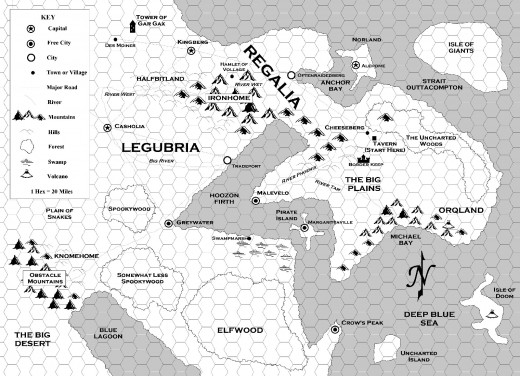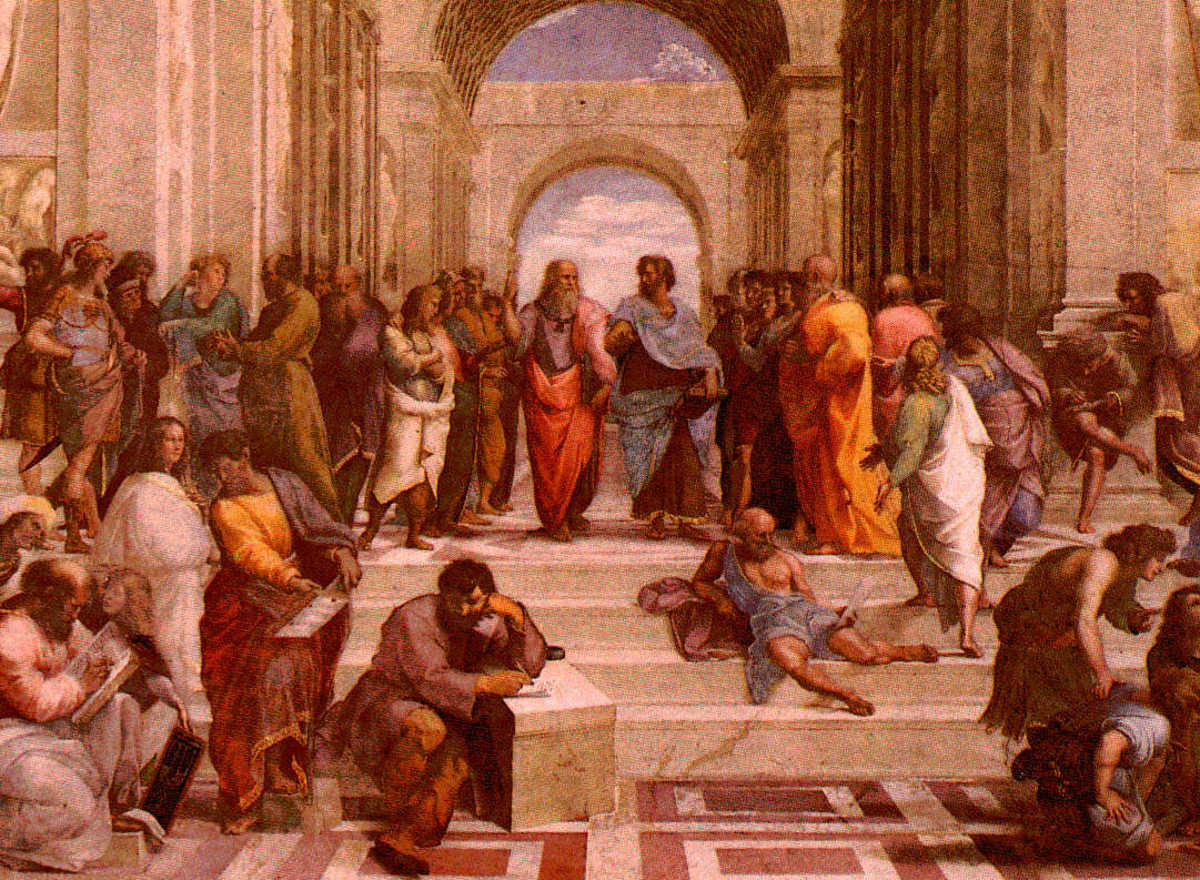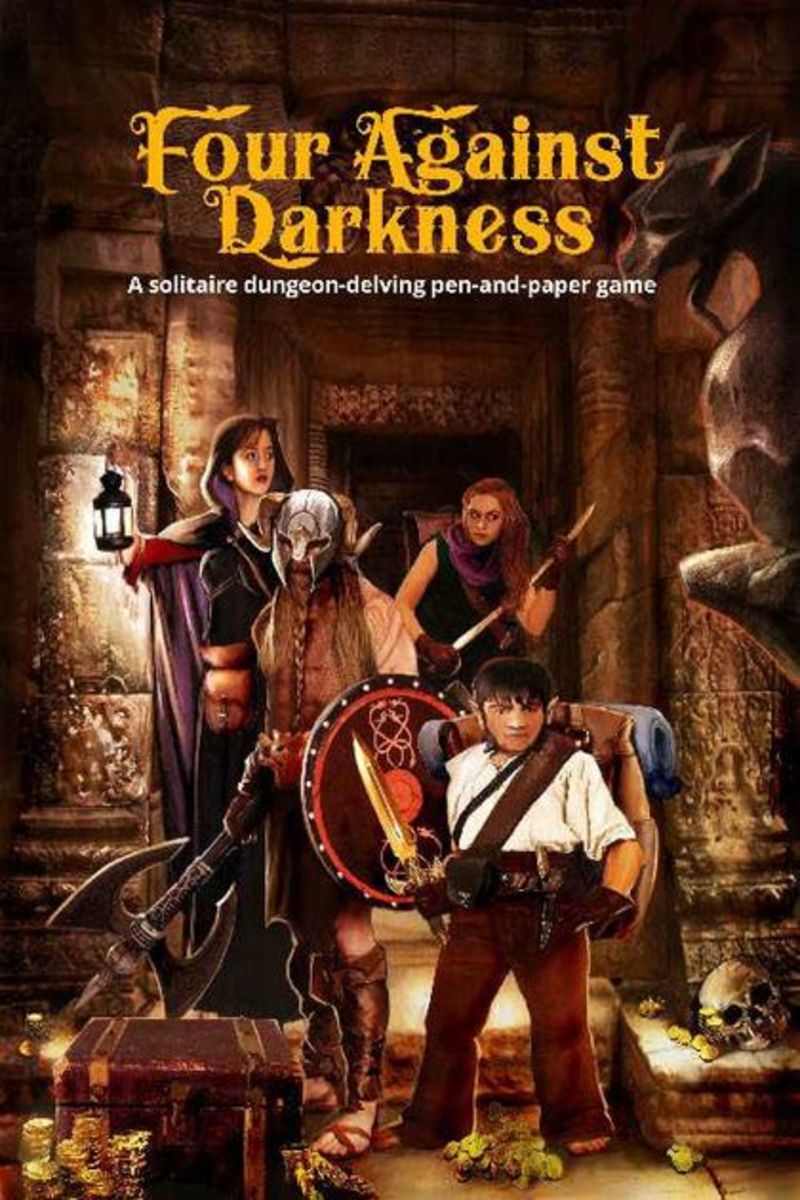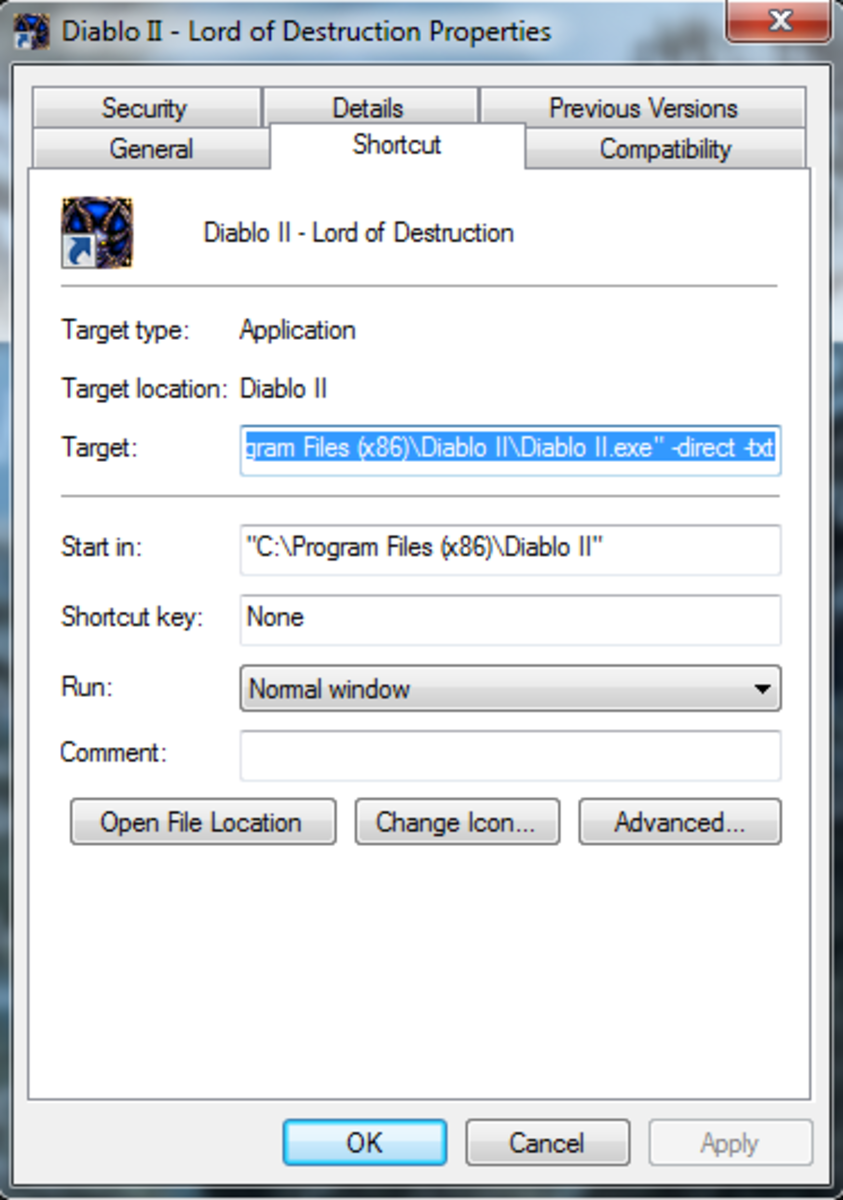- HubPages»
- Games, Toys, and Hobbies»
- Role Playing Games»
- General Roleplaying
Defining the Campaign
Once you know what RPG you’re going to play, you might think that it’s time to start creating characters. Unless the game’s premise is very narrowly-defined, however, you still need to set the parameters of the story that you and your fellow players will be telling. In gamer-speak, this ongoing story is called the campaign. In addition to coming up with a general premise for your story, you'll want to decide whether your group will ignore, alter, or add to the setting you'll be using.
The first step in defining your campaign is deciding when and where the game takes place. Most games provide a very broad setting like “modern-day America” or “Middle Earth.” It’s up to your group to decide what location your story will focus on (Seattle or Gondor, for example). Even if the campaign spans the world, most player groups have a base of operations, and every campaign has to have a starting point. The “when” of a campaign is usually defined by the game, but that isn't always the case. For example, if you’re planning a game based on Star Trek, you’ll need to decide whether the game occurs during the time of the original series, in the 24th Century of The Next Generation, or in the splinter universe of the J.J. Abrams reboots.

Once you’ve pinned down the setting of the campaign, it’s time to decide how the character group fits into the world, and what keeps them together. A popular group origin in RPGs is to have the characters meet in a bar. Unfortunately, this origin is contrived, cliched, and rarely makes any sense. If you want to tell a satisfying story, the characters need some reason to work together, whether it’s a common goal or just safety in numbers. For example, if you’re playing a Harry Potter game, you may decide that the characters are Hogwart’s students from one particular house, a group of aurors hunting down dark wizards, members of the Chudley Cannons quidditch team who spend their time between matches solving mysteries, or muggles who have somehow gotten mixed up in events of the wizarding world.
Next, decide what sorts of adventures the players want their characters to have. The broad scope of the party’s adventures will be determined by the game and group set-up, but it’s important to know what elements of the genre the players want to explore. You know a super-hero team is going to fight bad guys, but it’s important to know whether the players are more interested in fighting street crime, killing Nazis, battling cosmic threats, or dealing with the soap operatic events of their civilian lives.
By now, you should have a good idea of the general tone of the campaign. If the characters are brooding survivors in a post-apocalyptic world, the tone is probably pretty grim. If they're cartoon characters having wacky adventures, everyone will expect a more light-hearted tone. In most games, the tone isn't quite so obvious, so it's usually a good idea to discuss the balance of darkness, humor, drama, and other elements that contribute to the overall "feel" of the game. If half the players in your crime show game expect Sin City and the other half want Reno 911, the campaign's going to fall apart rather quickly.
Especially if the game has a dark or irreverent tone, it's also a good idea to establish what subject matter is and is not appropriate. Some gamers enjoy exploring dark or potentially sensitive subject matter like sexuality, drug abuse, or religion in their RPGs. Others prefer to keep things light and focus on heroic adventure. If the genre and tone of the game suggests the introduction of themes or ideas that could make players uncomfortable, the group should decide what boundaries need to be set, if any. The point of a role-playing game is to have fun, not to offend or traumatize your fellow players.
Knowing when and where the campaign is set, how the characters know one another and fit into the game world, and what kinds of stories everyone wants to tell is extremely important. Establishing this information prevents players from having to guess what types of characters are appropriate for the game and helps ensure that the characters will have some common bonds that give them a reason to work together.
© 2010 Steve Johnson





